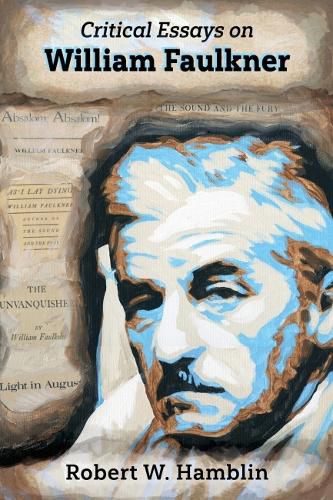Readings Newsletter
Become a Readings Member to make your shopping experience even easier.
Sign in or sign up for free!
You’re not far away from qualifying for FREE standard shipping within Australia
You’ve qualified for FREE standard shipping within Australia
The cart is loading…






This title is printed to order. This book may have been self-published. If so, we cannot guarantee the quality of the content. In the main most books will have gone through the editing process however some may not. We therefore suggest that you be aware of this before ordering this book. If in doubt check either the author or publisher’s details as we are unable to accept any returns unless they are faulty. Please contact us if you have any questions.
Critical Essays on William Faulkner compiles scholarship by noted Faulkner studies scholar Robert W. Hamblin. Ranging from 1980 to 2020, the twenty-one essays present a variety of approaches to Faulkner’s work. While acknowledging Faulkner as the quintessential southern writer-particularly in his treatment of race-the essays examine his work in relation to American and even international contexts. The volume includes discussions of Faulkner’s techniques and the psychological underpinnings of both the origin and the form of his art; explores how his writing is a means of saying ‘no’ to death ; examines the intertextual linkages of his fiction with that of other writers like Shakespeare, Twain, Steinbeck, Warren, and Salinger; treats Faulkner’s use of myth and his fondness for the initiation motif; and argues that Faulkner’s film work in Hollywood is much better and of far greater value than most scholars have acknowledged.
Taken as a whole, Hamblin’s essays suggest that Faulkner’s overarching themes relate to time and consequent change. The history of Faulkner’s Yoknapatawpha stretches from the arrival of the white settlers on the Mississippi frontier in the early 1800s to the beginnings of the civil rights movement in the 1940s. Caught in this world of continual change that produces a great degree of uncertainty and ambivalence, the Faulkner character (and reader) must weigh the traditions of the past with the demands of the present and the future. As Faulkner acknowledges, this process of discovery and growth is a difficult and sometimes painful one; yet, as Hamblin attests, to engage in that quest is to realize the very essence of what it means to be human.
$9.00 standard shipping within Australia
FREE standard shipping within Australia for orders over $100.00
Express & International shipping calculated at checkout
This title is printed to order. This book may have been self-published. If so, we cannot guarantee the quality of the content. In the main most books will have gone through the editing process however some may not. We therefore suggest that you be aware of this before ordering this book. If in doubt check either the author or publisher’s details as we are unable to accept any returns unless they are faulty. Please contact us if you have any questions.
Critical Essays on William Faulkner compiles scholarship by noted Faulkner studies scholar Robert W. Hamblin. Ranging from 1980 to 2020, the twenty-one essays present a variety of approaches to Faulkner’s work. While acknowledging Faulkner as the quintessential southern writer-particularly in his treatment of race-the essays examine his work in relation to American and even international contexts. The volume includes discussions of Faulkner’s techniques and the psychological underpinnings of both the origin and the form of his art; explores how his writing is a means of saying ‘no’ to death ; examines the intertextual linkages of his fiction with that of other writers like Shakespeare, Twain, Steinbeck, Warren, and Salinger; treats Faulkner’s use of myth and his fondness for the initiation motif; and argues that Faulkner’s film work in Hollywood is much better and of far greater value than most scholars have acknowledged.
Taken as a whole, Hamblin’s essays suggest that Faulkner’s overarching themes relate to time and consequent change. The history of Faulkner’s Yoknapatawpha stretches from the arrival of the white settlers on the Mississippi frontier in the early 1800s to the beginnings of the civil rights movement in the 1940s. Caught in this world of continual change that produces a great degree of uncertainty and ambivalence, the Faulkner character (and reader) must weigh the traditions of the past with the demands of the present and the future. As Faulkner acknowledges, this process of discovery and growth is a difficult and sometimes painful one; yet, as Hamblin attests, to engage in that quest is to realize the very essence of what it means to be human.